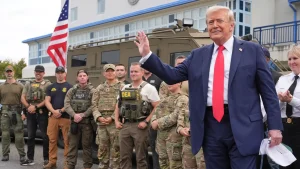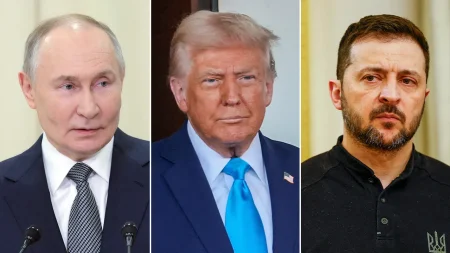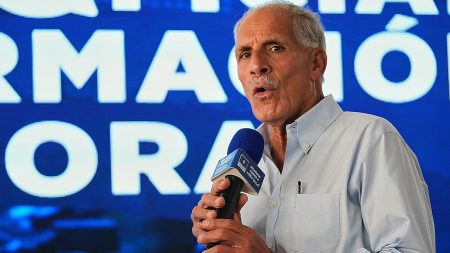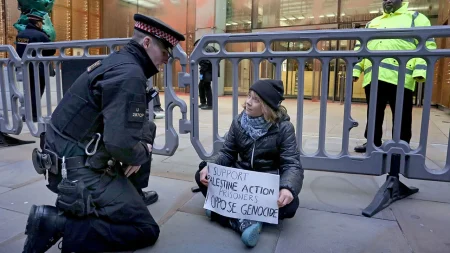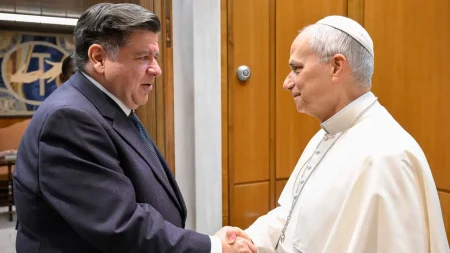The escalating tensions in northern Syria threaten to ignite a new conflict, with Turkish President Recep Tayyip Erdoğan poised to launch an invasion against the U.S.-allied Syrian Kurds (SDF). Erdoğan’s motivations stem from his long-standing animosity towards the Kurdish forces, whom he views as an extension of the PKK, a group designated as a terrorist organization by Turkey, the U.S., and the EU. The SDF, instrumental in the defeat of ISIS, now faces an existential threat as pro-Turkish forces, including the Syrian Opposition and the Syrian National Army, amass near Kobani and continue assaults on the Tishreen Dam. The SDF, having lost thousands of fighters in the fight against ISIS, finds itself isolated, receiving no international support beyond U.S. mediation efforts for a cease-fire.
The precarious cease-fire brokered by the White House between Turkey and the SDF remains largely disregarded by Erdoğan and pro-Turkish forces. Reports indicate a build-up of Turkish-aligned forces, including the Al Hamza division and Sultan Suliman Shah division, known for their loyalty to the extremist Nationalist Movement Party (MHP), Erdoğan’s political ally. These forces have launched attacks on the SDF, utilizing drones and artillery, raising concerns about a full-scale invasion. The SDF appeals for international support, highlighting Turkey’s aggression and its disregard for the cease-fire. Experts warn that the escalating conflict could destabilize the region and allow for the resurgence of ISIS, posing a significant threat to regional and international security.
The U.S. finds itself in a complex predicament, caught between its NATO ally, Turkey, and its partnership with the SDF in the fight against ISIS. The State Department, while acknowledging the fragile situation in Syria, calls for de-escalation and a Syrian-led political process under UN resolution 2254. The U.S. emphasizes the importance of stability and the enduring defeat of ISIS, urging all parties, including Turkey, to exercise restraint. However, critics argue that the Biden administration’s approach has been insufficient to curb Erdoğan’s aggression, potentially jeopardizing the security gains achieved against ISIS.
The potential consequences of a Turkish invasion are dire. With the SDF forced to divert resources to defend against Turkish attacks, the security of prisons holding thousands of ISIS fighters is compromised, raising the specter of a resurgence of the terrorist group. This not only threatens regional stability but also poses a direct threat to American security, according to counter-terrorism experts. Furthermore, the humanitarian cost of a new conflict would be devastating, exacerbating the suffering of the Syrian people.
Bipartisan concern is growing within the U.S. Congress, with lawmakers urging the Biden administration to take stronger action. Senator John Kennedy publicly called on Erdoğan to “leave the Kurds alone,” emphasizing the crucial role the Kurds played in defeating ISIS. He threatened to pursue sanctions against Turkey if the attacks continue, highlighting the potential economic ramifications for Turkey’s already fragile economy. Senators Chris Van Hollen and Lindsey Graham echoed these sentiments, threatening sanctions and criticizing Turkey’s actions as undermining regional security.
Turkey denies the reports of attacks on the SDF, claiming it has no issues with Syrian Kurds and blaming the PKK/YPG/’SDF’ for the escalating tensions. Turkey insists its actions are aimed at combating terrorism and reflect the will of the Syrian people to expel the Kurdish forces. However, this narrative contradicts the SDF’s account and the concerns expressed by U.S. officials and lawmakers. The differing perspectives underscore the complexity of the situation and the urgent need for a diplomatic solution. Experts suggest that the U.S. should facilitate dialogue between Turkey and the Kurdish administration in Syria, building on past instances of cooperation, to achieve a lasting agreement that addresses Turkey’s security concerns while preserving Kurdish autonomy. This approach, echoing the success of the Abraham Accords, could pave the way for a transformative breakthrough in the region. The recent meeting between a top U.S. diplomat and representatives of Hayat Tahrir al-Sham (HTS), a U.S.-designated terrorist organization, further complicates the situation, raising questions about the U.S. strategy in Syria. While the U.S. emphasizes its commitment to a cease-fire and de-escalation, the evolving dynamics on the ground and the involvement of various actors create a volatile and unpredictable environment.
